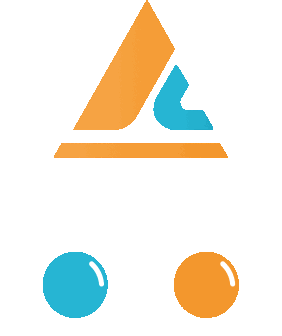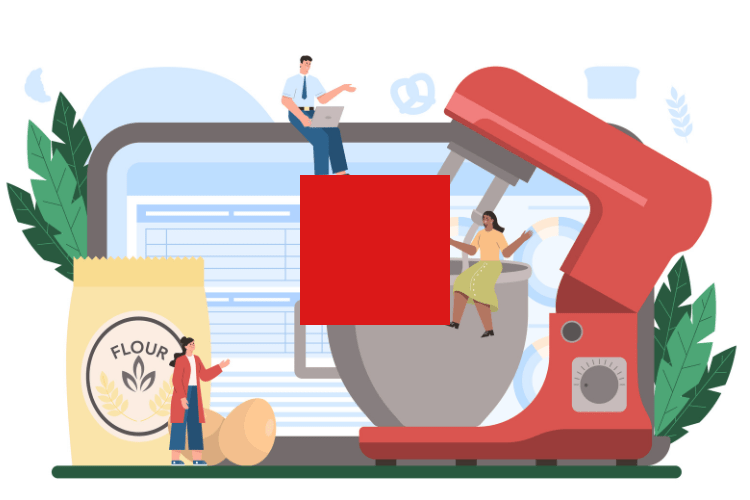
Close

BCoder Castle – Best Software App & Web Design Development Company 2023

The food industry has been transformed by the integration of artificial intelligence (AI). AI are being used to enhance efficiency, productivity, and quality across various aspects of food production, from processing and manufacturing to packaging and distribution.
AI have also improved food safety by reducing the risk of contamination and human error. As automation becomes more prevalent in the food industry, there are both benefits and potential drawbacks to consider, including changes to the job market and ethical considerations. The adoption of this will likely continue to shape the future of the food industry, offering new opportunities for innovation and growth.
Artificial intelligence (AI) is playing a significant role in improving food safety and reducing the risk of contamination in the food industry. By using machine learning algorithms, AI systems can analyze vast amounts of data in real-time to identify potential contamination risks and provide immediate alerts for corrective action. For example, AI-powered sensors can monitor environmental factors such as temperature, humidity, and air quality in food storage areas to detect potential hazards that could compromise food safety.
Additionally, AI can assist in identifying patterns of contamination outbreaks by analyzing large datasets of food-related illnesses, thereby helping to prevent future outbreaks. The ability of AI to monitor and detect potential contamination risks in real-time has the potential to significantly improve food safety and reduce the risk of illness or disease from contaminated food products.

There are several artificial intelligence (AI) tools used in the food industry to improve efficiency, quality control, food safety, and sustainability. Here are a few examples:
AI-powered computer vision systems can be used to analyze images and videos of food products to detect defects, monitor quality, and identify contaminants.
AI can be used to analyze data on consumer behavior, sales, and supply chain operations to predict demand, optimize inventory management, and reduce waste.
AI-powered robots can be used for tasks such as harvesting, sorting, and packaging food products, reducing labor costs and improving efficiency.
AI-powered chatbots and voice assistants can be used to answer customer questions about food products, nutrition, and allergens, improving the customer experience.
AI can be used in combination with blockchain technology to enhance traceability and transparency in the food supply chain, allowing for easier identification of the source of contamination and faster recalls.
Artificial intelligence (AI) has several benefits for the food industry, including
AI can be used to optimize production processes and supply chain operations, reducing waste and improving productivity.
AI-powered computer vision systems can monitor food processing lines in real time, detecting defects and ensuring products meet specific quality standards.
AI can be used to monitor the food supply chain for potential contamination risks and provide immediate alerts for corrective action, reducing the risk of foodborne illnesses.

AI can be used to analyze data from wearable devices and other sources to provide personalized nutrition recommendations to consumers, promoting healthy eating habits and preventing chronic diseases.
AI can be used to optimize resource use, reduce waste, and improve supply chain transparency, contributing to more sustainable practices in the food industry.
AI can help reduce labor costs by automating repetitive tasks, optimizing inventory management to reduce waste, and improving production planning to maximize efficiency and profitability.
While there are many benefits to implementing artificial intelligence (AI) in the food industry, there are also some potential challenges to consider. Here are a few:
Implementing AI technology can be expensive, particularly for small and medium-sized enterprises. The initial investment in hardware and software, as well as ongoing maintenance costs, may be prohibitive for some businesses.
The use of AI requires the collection and storage of large amounts of data, which raises concerns about data privacy and security. Businesses must ensure that customer data is protected and that they comply with relevant data privacy regulations.
Implementing AI requires skilled workers who are knowledgeable in data analysis and AI technology. There may be a shortage of skilled workers in the food industry, particularly in rural areas or smaller towns.
AI raises ethical concerns related to bias, discrimination, and transparency. AI algorithms may reflect the biases of their creators, and it is important to ensure that they are fair and unbiased.
Some workers and managers may be resistant to change and may be hesitant to adopt new technology. It is important to provide training and education to help workers understand the benefits of AI and how to use it effectively.

The food industry is a highly competitive and constantly evolving business. To stay ahead of the competition, it is essential to embrace new technologies that can improve business efficiency and productivity.
At Bocder Castle, we are highly interested in the increasing use of AI-based technologies across different industries. Our team of developers recognizes the benefits of automation achieved by integrating AI-based systems. If you own a food business, such as a restaurant chain, or are considering creating an on demand food delivery mobile app to meet the growing demand in your area, we recommend a long-term partnership to develop a customized application that meets your specific needs.
Our Artificial Intelligence solutions can be used to automate customer service processes, such as chatbots that can quickly respond to customer inquiries and resolve issues. Additionally, our solutions can help you optimize your business supply chain management by predicting demand and optimizing inventory levels.
Ans: Artificial intelligence in the food industry refers to the use of advanced technology such as machine learning, natural language processing, and computer vision to improve various aspects of the food industry. It can help in enhancing food safety, quality, and efficiency, as well as aid in product development, inventory management, and supply chain optimization.
Ans: AI can help in reducing food waste by analyzing data from various sources such as sales data, inventory levels, and expiration dates to predict demand and optimize inventory management. It can also aid in identifying products that are approaching their expiration dates and alerting staff to use them before they go to waste. Additionally, AI can help in developing new products made from surplus or wasted ingredients, reducing waste and creating new revenue streams.
Ans: Yes, AI can improve food quality by analyzing data from various sources such as customer feedback, nutritional information, and sensory analysis. It can help in identifying trends and patterns to optimize food formulations, flavor profiles, and nutritional content.

